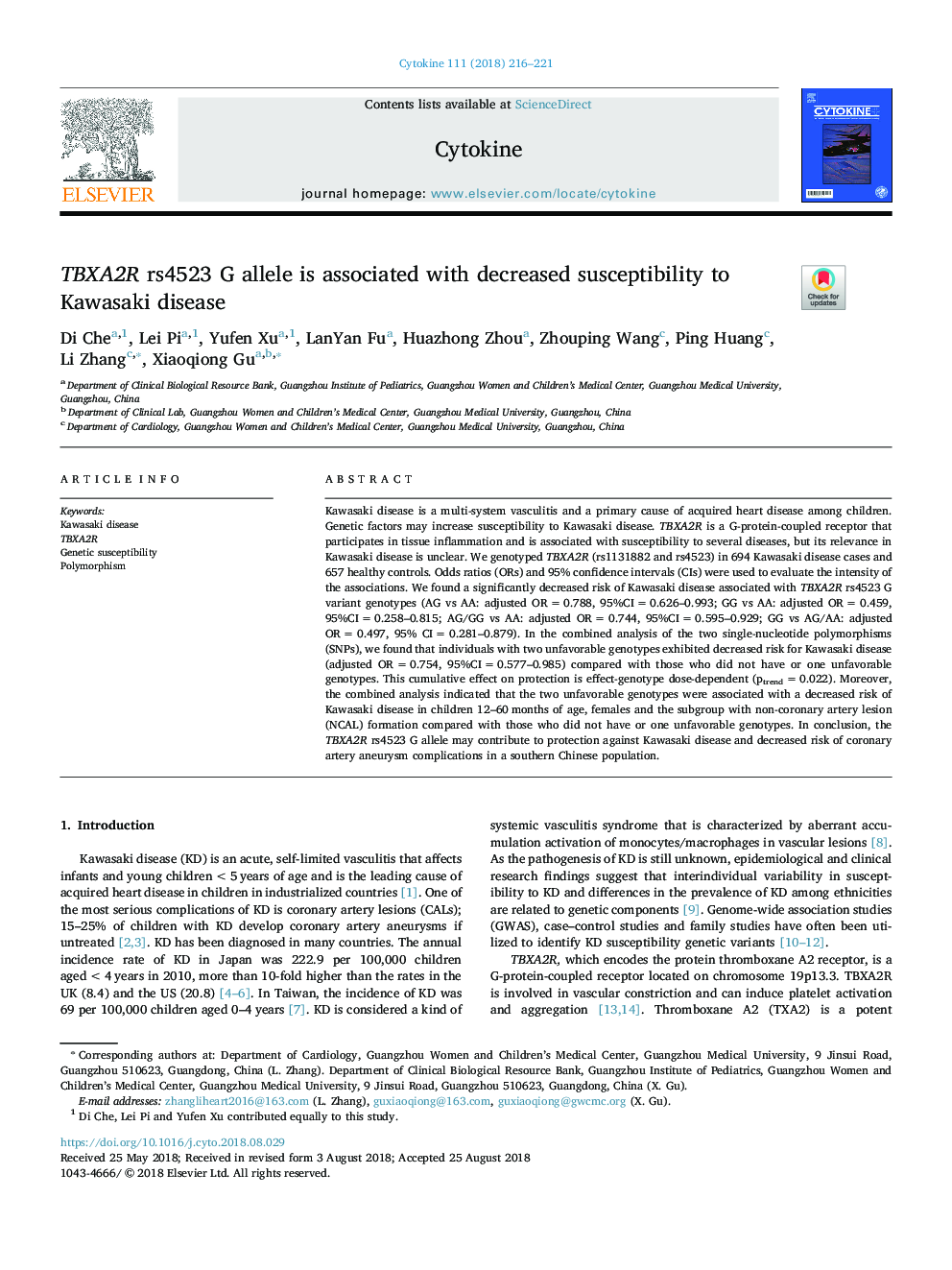| Article ID | Journal | Published Year | Pages | File Type |
|---|---|---|---|---|
| 9955288 | Cytokine | 2018 | 6 Pages |
Abstract
Kawasaki disease is a multi-system vasculitis and a primary cause of acquired heart disease among children. Genetic factors may increase susceptibility to Kawasaki disease. TBXA2R is a G-protein-coupled receptor that participates in tissue inflammation and is associated with susceptibility to several diseases, but its relevance in Kawasaki disease is unclear. We genotyped TBXA2R (rs1131882 and rs4523) in 694 Kawasaki disease cases and 657 healthy controls. Odds ratios (ORs) and 95% confidence intervals (CIs) were used to evaluate the intensity of the associations. We found a significantly decreased risk of Kawasaki disease associated with TBXA2R rs4523 G variant genotypes (AG vs AA: adjusted ORâ¯=â¯0.788, 95%CIâ¯=â¯0.626-0.993; GG vs AA: adjusted ORâ¯=â¯0.459, 95%CIâ¯=â¯0.258-0.815; AG/GG vs AA: adjusted ORâ¯=â¯0.744, 95%CIâ¯=â¯0.595-0.929; GG vs AG/AA: adjusted ORâ¯=â¯0.497, 95% CIâ¯=â¯0.281-0.879). In the combined analysis of the two single-nucleotide polymorphisms (SNPs), we found that individuals with two unfavorable genotypes exhibited decreased risk for Kawasaki disease (adjusted ORâ¯=â¯0.754, 95%CIâ¯=â¯0.577-0.985) compared with those who did not have or one unfavorable genotypes. This cumulative effect on protection is effect-genotype dose-dependent (ptrendâ¯=â¯0.022). Moreover, the combined analysis indicated that the two unfavorable genotypes were associated with a decreased risk of Kawasaki disease in children 12-60â¯months of age, females and the subgroup with non-coronary artery lesion (NCAL) formation compared with those who did not have or one unfavorable genotypes. In conclusion, the TBXA2R rs4523 G allele may contribute to protection against Kawasaki disease and decreased risk of coronary artery aneurysm complications in a southern Chinese population.
Related Topics
Life Sciences
Biochemistry, Genetics and Molecular Biology
Endocrinology
Authors
Di Che, Lei Pi, Yufen Xu, LanYan Fu, Huazhong Zhou, Zhouping Wang, Ping Huang, Li Zhang, Xiaoqiong Gu,
